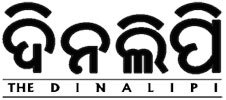Kolkata Rape-Murder: ‘Who Collected Samples?’ ‘How Was Autopsy Done Without Formal Request?’ Asks Supreme Court
New Delhi: The Supreme Court on Monday directed the CBI to file a fresh status report on the investigation into the rape and murder of a trainee doctor at Kolkata’s RG Kar Hospital. This came after the CBI submitted an initial report indicating it had leads in the probe.
Chief Justice DY Chandrachud said, “The status report has been filed by CBI, it appears that investigation is in progress. We direct the CBI to file a fresh status report… we will take it up on Tuesday… CBI is doing it, we don’t want to guide CBI on its investigation.”
The court also sought clarification on the timing of the unnatural death report, following the submission of a status report by the CBI.
Senior advocate Kapil Sibal informed the bench that the death certificate was issued at 1:47 p.m., while the police registered the entry of unnatural death at 2:55 p.m. However, Solicitor General Tushar Mehta countered, stating that according to records, the report was filed at 11:30 p.m.
The Supreme Court also asked the West Bengal government how the autopsy was conducted without a formal request.
Chief Justice DY Chandrachud asked, “Where is the challan of the body when it’s handed over for post-mortem?”
Solicitor General Tushar Mehta, representing the CBI, informed the bench that the challan was not part of their records. “It’s crucial because this column contains what other material was sent along with the body,” he said.
He added that, in the absence of the challan, the post-mortem doctor cannot accept the body. The CBI also did not have the challan.
“How was the post-mortem carried out in the absence of a formal request?” the Chief Justice asked.
The CBI flagged the forensics report as a key issue, questioning who collected the samples. The agency plans to send samples to the All India Institute of Medical Sciences (AIIMS) in Delhi.
Reading out from the forensics report, Mehta said, “When the body was recovered at 9:30 a.m., jeans were removed, the body was semi-nude, and there were injury marks on private parts.”
The CBI counsel also pointed out discrepancies in the handling of evidence, noting that blood samples were not stored at the required 4 degrees Celsius, and stressed the importance of the first few hours in a rape and murder investigation.
The Chief Justice responded, “That’s why we asked if you have the complete CCTV footage or not? Who else entered after the accused exited?”
At the outset of the hearing, the CBI submitted its status report on the investigation to the bench. The judges reviewed the status report handed to them in a sealed envelope. Sibal also informed the court that 23 people had died because doctors were on strike, and the state health department submitted a report on the same. The case was initiated by the Supreme Court on its own, and a three-judge bench comprising the Chief Justice and Justices JB Pardiwala and Manoj Misra is hearing the matter, India Today reported.
The Supreme Court, during a hearing on August 20, termed the incident “horrific” and issued a set of directions, including the establishment of a 10-member National Task Force to formulate a protocol for ensuring the safety and security of doctors and other healthcare professionals.
On August 22, the court reprimanded the Kolkata Police for the delay in registering the unnatural death case. The court also appealed to the protesting doctors to return to work, stating that “justice and medicine” cannot be halted.
The investigation of the case has been transferred from the Kolkata Police to the CBI on the direction of the Calcutta High Court.
Meanwhile, thousands hit the streets in Kolkata on Sunday night, demanding justice for the RG Kar doctor. Protesters, both women and men, young and old, took to the streets, forming human chains, writing graffiti on the roads, holding burning torches, and singing the national anthem, as many waved the tricolour.




Comments are closed, but trackbacks and pingbacks are open.